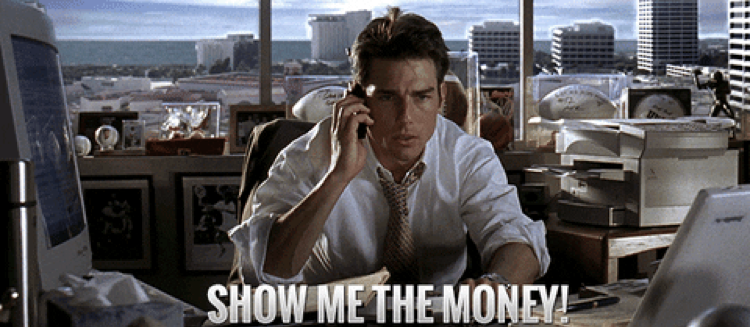As a marketing agency that mostly serves small-to-medium business (SMB) clients, markit360 often ends up working with business owners and other executives that share a similar trait: they’ve never hired an outside marketing agency before. While all of our clients have different challenges and goals, these “first-timers” typically come to us with two fundamental questions they want to be answered before we do anything else:
- ‘Where should we start?’
- ‘How much is this going to cost?’
Regarding question #2: We recently published an article about the various methods an SMB could determine its marketing budget.
And for a discussion about the ‘where should we start?’ question, please continue reading.
Start With an Assessment
The old saying that ‘there are no shortcuts to quality’ is relevant in the business world. And when it comes to launching a new marketing initiative, there’s no substitute for doing your homework in the form of a thorough assessment of where your business stands.
Completing a systematic assessment before launching a business initiative is not a new concept. Business schools have been teaching the SWOT Analysis for decades and with good reason; SWOT has stood the test of time as an effective business analysis framework. There are many other analysis tools out there to use. If you’re interested, you can ask a trusted peer or mentor, do a google search, or poll your professional network to find a different assessment tool that might be more applicable to your business. But you really can’t go wrong with the good ‘ole SWOT, so don’t waste too much time trying to find something else that’s the latest and greatest. The SWOT works just fine.
Remember, You Are the Expert When It Comes to Your Business
No one is going to know your business better than you do, and you can’t expect a newly hired marketing agency to instantaneously get up to speed on all of your business’ intricacies. Therefore, it makes sense for your team to be responsible for completing this assessment. If you’re using the SWOT, this is especially true for the strengths and weaknesses elements.
Depending on your industry, there might be some independent experts or other resources available to help you paint a more complete picture of where your business stands relative to the macro environment or your competitive landscape. But no agency will ever be able to “catch up” to you when it comes to knowing the ins and outs of your business. The best way to get an agency up to speed is to put some thought and a lot of effort into finding, organizing, and communicating all of the relevant information about your business to the agency. This “crash course” should hopefully be enough for them to have a meaningful understanding of where you are.
One last thought: it is crucial for you to be as brutally honest as you can possibly be when assessing your own business. This exercise is not the time for unwarranted optimism or pollyanna projections. Honesty — brutal honesty — it’s what’s needed here.
What (Talent and Resources) Do You Have In-House?
Over the years, our SMB clients have run the gamut: some had strong teams that excelled at all aspects of marketing. Other clients of ours came to us without a single marketing employee. No matter what your company’s existing marketing capabilities are, it’s important for you to find an agency that complements what you already have. In other words, it’s best to find an agency that is strongest where your in-house team is lacking.
One vital skill set that seems to be lacking in many SMBs is marketing strategy — they know their business inside and out, but identifying new opportunities or new ways of doing things is more of a challenge. A talented marketing agency with a strong strategic planning skillset should be able to help you with the more subjective elements of the SWOT analysis, and with identifying new opportunities and introducing new marketing strategies to take advantage of them.
Goals Need to Be SMART
“If you don’t know where you are going,
you’ll end up somewhere else.”
~Yogi Berra
It is crucial to have thoroughly defined goals before embarking on any work project or initiative, and this is true for any marketing projects as well, especially when you’re working with an outside agency. But having a stated goal is not enough; a marketing goal needs to be SMART in order to be effective.
“SMART” is an acronym used to denote the necessary criteria of a business goal. According to this framework, a goal must be Specific, Measurable, Attainable, Relevant, and Time-bound in order to be effective.
Each of these is important, but special attention must be paid to the attainable element as you’re thinking about hiring an agency for the first time. To put it another way, the goal at hand might be perfectly attainable, however, it may be unattainable to you because it’s beyond the capabilities of your in-house team. Or maybe your team is too busy and simply doesn’t have the bandwidth to take on additional work. Either of these scenarios would be the ideal time to bring an outside agency in. But as we discuss in the next section, make sure it’s the right agency.
Understand What a Marketing Agency Can and Cannot Do
Once you have your marketing goals set (making sure that they’re SMART goals), it’s important to find an agency that aligns with what you’re trying to do. If your company has to host a series of in-person events in order to achieve its marketing goals, then your agency better have event management experience. Need to build an inbound content marketing program? Better find an agency with that expertise. Marketing has become a lot more specialized in the digital age, and marketing agencies have fully embraced this trend. Whether it’s an agency that knows your industry or an agency with a proven track record in the area where you need help, it’s important to find an agency that fits.

A Marketing Agency Can’t Operate Without a Budget
There’s the old business saying that “what gets measured gets improved.” Well, here’s another business saying for you: what gets budgeted gets done.
There are many different approaches to the marketing budgeting process. But in addition to the value of the agency’s time, expertise, and strategic advice, there are a lot of effective marketing tactics and tools — advertising, technology, and premium research to name but a few — that cost money. It’s easy for an SMB owner to be penny-wise and pound-foolish when it comes to their marketing spend. Don’t let unrealistic cost concerns prevent an agency from executing on the right strategy for your company’s goals.
Remember — marketing is an investment, and just like any other investment you make for your business, there should be an expected ROI on the money spent. Investing money in marketing without estimating the ROI beforehand is analogous to throwing the money away. Without the ROI, how will you know if it worked?
A Marketing Agency Can’t Help Without Your Input
One of the funny things about hiring help (both inside help like an employee, and outside help like an agency or a vendor) is that having “help” nonetheless creates additional work. In other words, new employees have to be onboarded and trained; likewise, a new agency needs information from and access to the client in order to be effective.
When marketing agency leaders get together to swap war stories, one of the most common complaints you hear is about how hard it is to get timely responses from their clients. Important emails are ignored, meetings get pushed or canceled, and important decisions that must be made in order to keep the project moving forward go unaddressed.
Once outside help has been identified and hired, many businesses often designate a point person to manage or “own” the relationship with the vendor. Ideally, that point person will have at least some understanding of the nature of the underlying work — i.e., an employee on the accounting team might own the relationship with an outside accounting firm. This dynamic is no different when it comes to managing an outside marketing agency.
Hopefully, the marketing point person has at least some authority to make minor decisions in order to keep the project moving, only bringing in senior executives for the big decisions or inflection points. If the point person has to run every single item up the flagpole no matter how insignificant, it’s obviously going to make the project go much more slowly.
A Marketing Agency Can’t Fix Deficiencies in Your Product/Service
One holy grail of modern-day marketing for both B2B and B2C companies is to foster an environment that allows for dynamic, two-way communication between a company and its customers. By enabling this 2-way exchange of information, an effective marketing agency can help its client improve their products or services by leveraging the feedback they receive from their customers. In this ideal state, marketing helps the customer understand how the business can help them to solve their problems and pain points, and the business receives the customer feedback that allows them to perfect the product-market fit.
But marketing on its own can’t fix the product or service — marketing’s “job” is to bring the deficiencies to the surface by giving the customer a voice. Sometimes, businesses are reluctant to open up an honest dialogue with their customers. This concern is misplaced — the smartest companies know that leveraging customer feedback and data are essential pieces needed to increase sales, improve customer satisfaction, and grow revenue.
A Marketing Agency Can’t Fix Stupid
One of the very few heroes to emerge in the aftermath of Hurricane Katrina was General Russell Honoré, a Lieutenant General in the U.S. Army who led the Joint Katrina Task Force. General Honoré had the hard-earned nickname of “The Ragin’ Cajun” thanks to his take-charge attitude, hatred of incompetence, and a habit of making public declarations that became instant, audible “memes” (in the days before social media) as soon as he said them.
Without a doubt, the most well-known of these sayings is “you are stuck on stupid.”
What he meant by that is, “I can’t help you if you’re going to stay ‘stuck on stupid.’” This same axiom holds true for marketing agencies and their clients — even the best agency can only do so much if their client’s intransigence prevents them from moving towards an effective solution.
And of course, this works both ways, and it’s certainly possible that in an agency-client relationship, it might be the agency that’s the stupid one. If you ever find yourself in that situation, then it might be time to find a new agency!
We certainly covered a lot of territory here, so this is a good time to reinforce the big takeaway: don’t neglect the foundational work, i.e., a SWOT assessment. The more effort and thought you put in on the front end of a new relationship with a marketing agency, the more you can expect to get out of it. And don’t forget that you need to be brutally honest!

